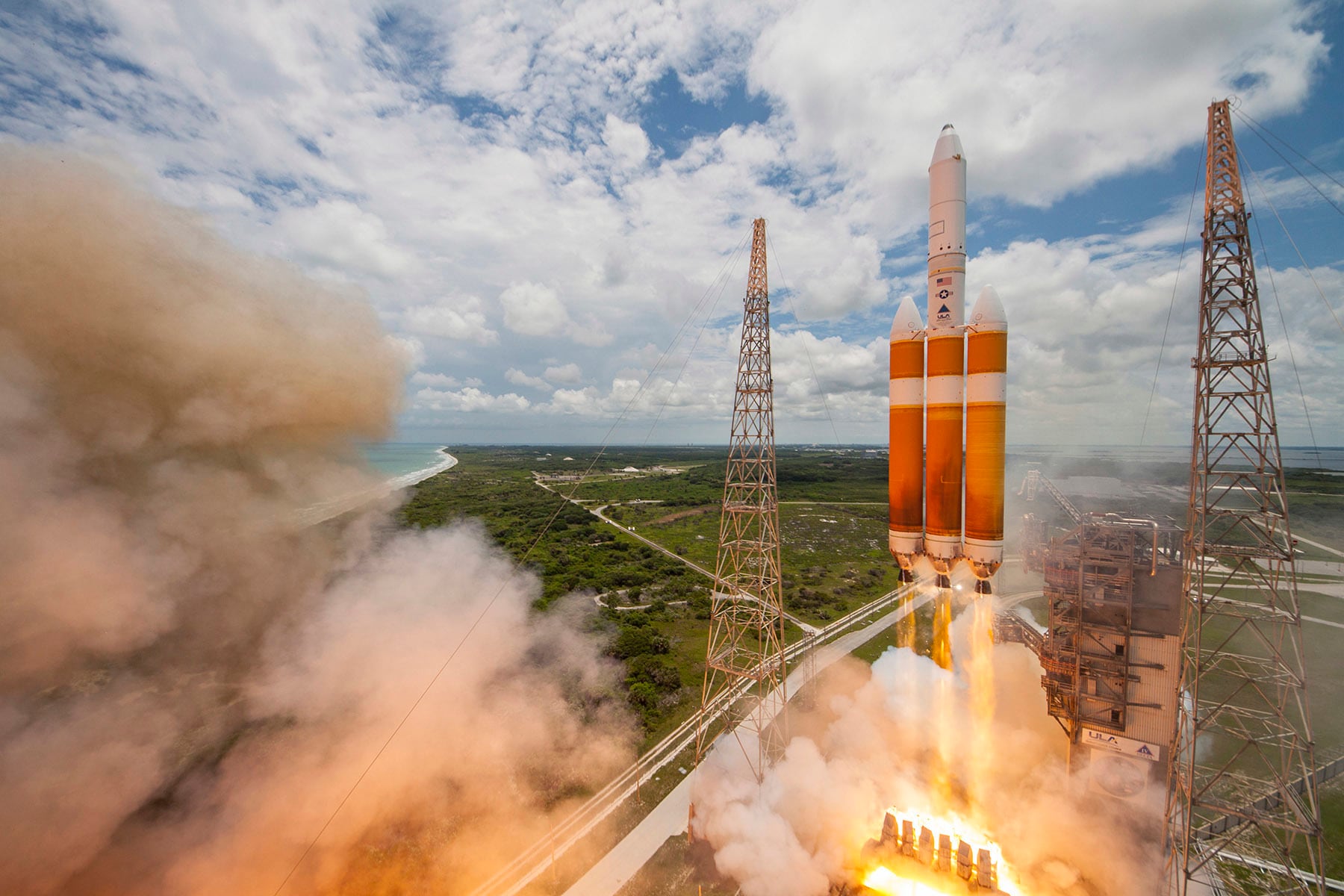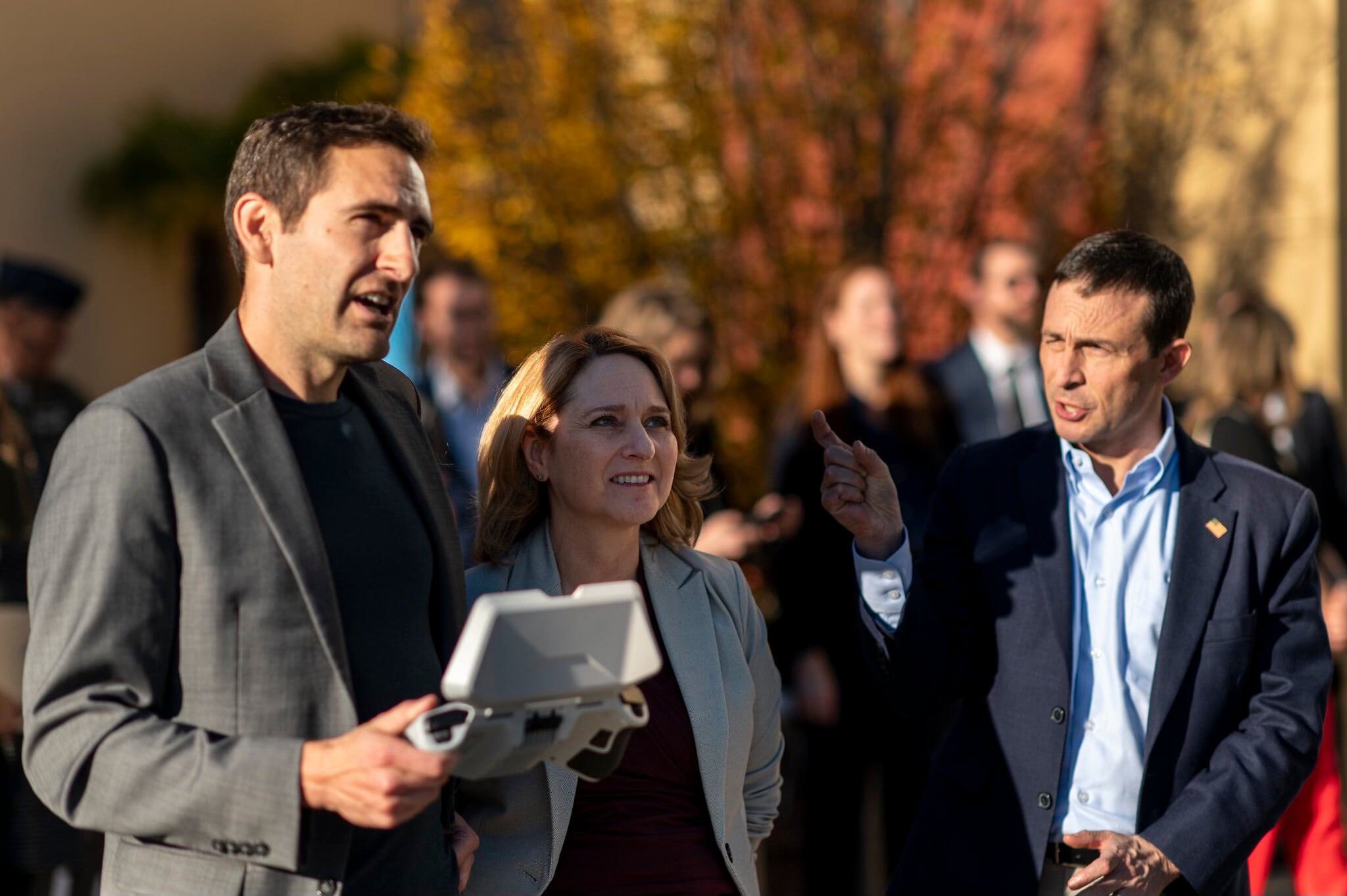The White House’s nominee to lead the intelligence community’s space agency said he would rely on artificial intelligence and new partnerships with industry to better position the National Reconnaissance Office for the next generation of space threats.
Christopher J. Scolese, the nominee to become the director of the National Reconnaissance Office, the government agency that buys and develops America’s intelligence satellites, testified before the Senate Armed Services Committee as part of a confirmation hearing June 4. In advanced policy questions released by the committee, Scolese outlined what he sees are the biggest challenges facing NRO: integrating new technology without disrupting current operations, staying ahead of adversaries, and increasing the speed at which the agency handles data without compromising its integrity and reliability.
“Space is an increasingly contested domain with increased threats to both ground and space systems,” Scolese said in the questionnaire. “Therefore, I view resiliency as a top priority and a persistent challenge. If confirmed, it will be critical to leverage the latest technology in our space and ground systems to stay ahead of our adversaries.”
In a May hearing before the Senate Select Committee on Intelligence, Scolese also answered questions relating to NRO combating adversaries.
“To provide innovative overhead systems, the National Reconnaissance Office (NRO) must constantly work to inject new technologies into programs and leverage the latest technologies into space and ground systems to stay ahead of our adversaries in terms of capability and resiliency,” Scolese said.
If confirmed, Scolese said one way he plans to get access to these new technologies is through partnerships with private industry.
Scolese said industry can provide personnel, tools, and facilities for development while the government has the experience and perspective to oversee it.
“I believe that neither the government nor the commercial sector alone can maintain the level of performance needed to keep the U.S. competitive in space, given the ambitions of our adversaries, so partnership with private industry is not only beneficial, but also necessary,” Scolese said.
Scolese, who serves as the director of NASA’s Goddard Space Flight Center, has worked with NASA in multiple roles since 1987. Members of Congress also appear to be concerned about how the NRO will handle data gathering and sharing and how that data will integrate into AI algorithms.
“My experience at the National Aeronautics and Space Administration (NASA) has shown me that it is critical to maintain a combination of data and algorithms that enables a trade between data storage and processing capability to manage costs,” Scolese said.
This topic also came up at the May hearing, when Scolese said he would work with industry and academia to maximize the potential of AI technology.
In written questions, committee members also expressed concern on the integration of small satellites in NRO missions.
Scolese said he “championed” the use of CubeSats and small satellites at NASA. CubeSats are a class of nanosatellite weighing less than three pounds.
“We have a responsibility to infuse the latest technology into our programs to stay ahead of our competitors and adversaries and to ensure that we are providing the needed data quickly and efficiently,” Scolese said. “Our competitors and adversaries are not afraid to take risks. If the U.S. is to maintain its competitive advantage in space, we must be willing to try new technologies and accept that not all new technologies will be a success.”
If confirmed, Scolese said he plans on using a combination of small, medium, and large satellites to complete missions.
However, while making this proposal, Scolese also said he would stay accountable to Congress.
“I believe that communicating with Congress on a regular and continuing basis enables us to increase the pace at which we address the threats we face in space, prevent acts of aggression, and remain consistent with American laws and values while managing risk,” Scolese said.
Both Senate committees also appeared to be concerned with information sharing with the National Geospatial-Intelligence Agency. The Armed Services Committee asked about operation integration between the NSA and NGA. Scolese said he understands the NRO to work with defense and intelligence communities to “tip and cue” between systems.
There is currently no director of NRO. The principle deputy director, Frank Calvelli, serves on the director’s behalf while confirmation hearings are ongoing.
Kelsey Reichmann is a general assignment editorial fellow supporting Defense News, Fifth Domain, C4ISRNET and Federal Times. She attended California State University.






